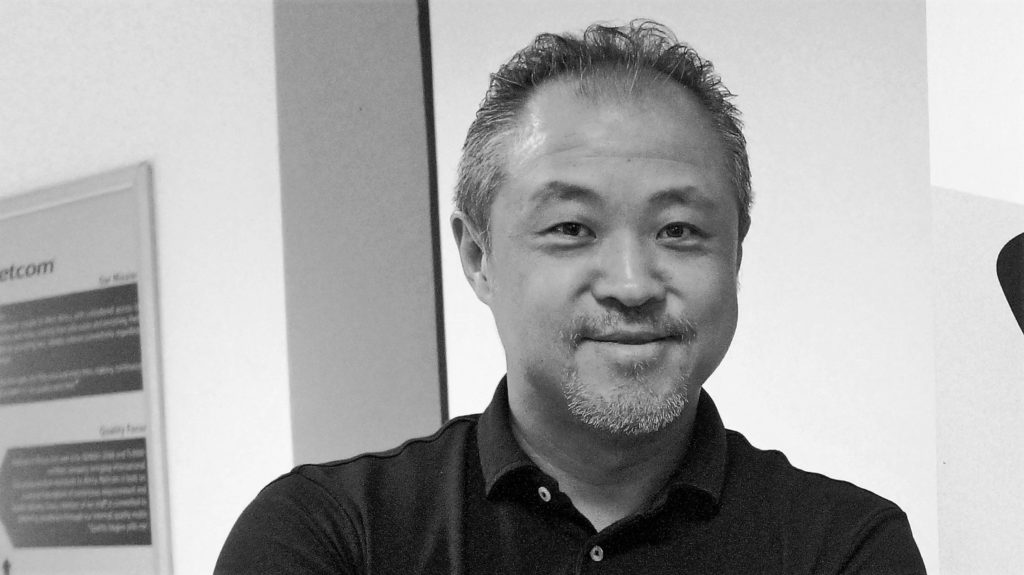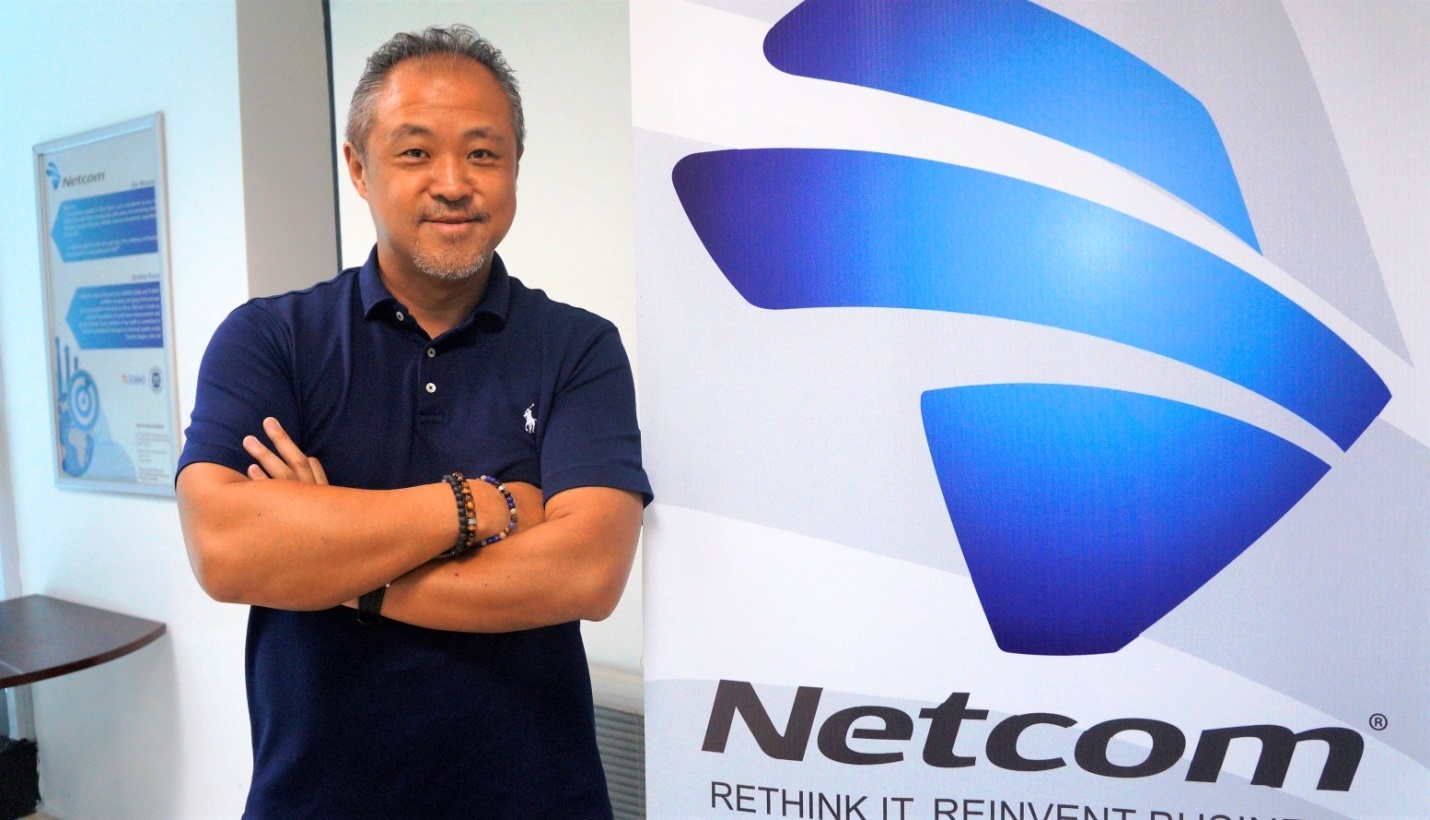Sean Hsu, CEO of NETCOM Africa, a Lagos-based technology solutions company with over a decade of operations in Nigeria delivering data centre services, managed IT solutions, data protection and other IT services share with IT Edge News, Anthony Nwosu and Tobi Opusunju, the challenges of managing competition in the dynamic ICT sector, why NETCOM leads the market and how businesses must keep adapting to trends in the industry.
Tell us about Netcom Africa and what type of ICT solutions you offer?
Netcom has been in business since 2004 as one of the foremost internet service providers in Nigeria, and we try as much as to stay ahead of competition. We have over time deployed cutting edge infrastructure technology solutions such as VSAT, WIMAX, radio and as of today, fiber technology, as well as, managed IT solutions (Cloud PBX, ERP, CRM, SaaS, HaaSas and IT outsourced services. Now we can be seen as a front runner in the area of transformational IT solutions for business. We also try as much as possible to engage organisations and ensure that they lead their market space by been abreast of the rapid changes in IT innovations. This is one of our strengths. Through a team of our experts and in line with global best practices, we deliver transformational IT solutions. With a 24/7 dedicated support team, we can be said to be one of the best in the country. From our team of network engineers, system integrators, and application developers, we have been able to bring global best IT solutions to Nigerian firms.
“We are leaving the CAPEX business to more of an OpEx based model with managed solutions like ERP. This is the new narrative of Netcom; we are going to use technology to our advantage. Instead of high hardware costs, which are eventually outdated and need replacing, we charge on per user basis.”
What are the basic challenges of running NETCOM Africa?
Well, it is obvious and power is very critical. We have that challenge as an ISP business is round the clock. We have a data centre as well as our network across the country. We need power to run and affordable power isn’t available 24/7 in Nigeria. That is a big problem that limits all businesses. Another critical issue is that we are in a country that no news is good news; this is in the area of customer/client feedback. I think no news is bad news because we are in a service industry and we need feedback. It isn’t just a Nigerian problem but a global one. We have to get feedback, be it positive or negative, it helps us to grow and improve.

Those that host with us or have their data warehoused in our data centre facility have never had any cause to complain over the years.
NETCOM is more of a customer-centric organization. Can customers call you at 2am and get response?
To answer your question directly, Yes! We have a round the clock non autobot response, we deploy this and have humans round-the-clock also. When people come to NETCOM, they are buying NETCOM for our reputation. We have grown NETCOM as a brand built on quality and trust. One key thing for us on the ISP side is that we have substantial capacity on all subsea fiber cables and we leverage on these facilities. At the end of the day, we are interested in uptime for clients. We do proactive monitoring and also deploy SMS alerts; we try to engage proactively with customers in real time. We notify our customers of information that they might not be aware of and this has made us to be transparent and customers are pleased. So we don’t take customer feedback lightly. For our Managed IT Solutions, every single product we provide, we have a NETCOM flavor in it. Let’s put it this way, say an organization buys Office 365, we manage the service end to end; from migration to configuration, customization, and, support. We encourage businesses to focus on their core and let us manage their IT. In all honesty, from Infracos to managed services, we use technology to help organizations increase their productivity. We listen to our customers, who have asked us for the past eight years to help them internally, which is why we evolved our business model from just an ISP to Managed IT Solutions, Outsourcing, and IT Consultancy.
“If right of way can be sorted out in Nigeria, then the cost of broadband would reduce drastically and last mile penetration increased.”
NETCOM has changed its business process and model. What really caused this?
The transition is a matter of economics, the margins on data are small, it’s around three to four percent and this is not sustainable. The cost of doing business is high and as an organization, for one to still stay afloat in a highly competitive market, there is a need for evolution. Let us look at this example; data sales need so much volume now compared to when we entered the market 14 years ago. The internet penetration in Nigeria is in major cities and the rural areas need satellite and they are not economically viable. But in managed services, you can make some decent margins. That is why we have to diversify, and in technology there is constant evolution. At the end of the day we have to look at costs, prices, and margins, and that is why we did a transition. When we started out, the culture in the company was like “we are fine, why change”, but today everyone in the company embraces change because we are trying to predict the future of business’, which is business intelligence, analytical intelligence, that is the future. Companies are beginning to come to terms that as they mature they might not have that 10% profit or more, the profits would shrink because of the ever evolving market, sophisticated customer base and competition especially in a stable environment. How do companies get to be viable? Its business intelligence! By analyzing data and having analysts connecting the dots. That is the future and that is the space we are playing in.
NETCOM can be called an early bird operator in data centre services, what are you doing to make Nigerian firms host in Nigeria?
In terms of data centre services, we are ISO certified and this is international certification recognized globally and we ensure we keep up to those certifications. Those that host with us or have their data warehoused in our data centre facility have never had any cause to complain over the years. We also have reputable partnerships with international carriers like TATA Communications and Avaya. We are proud of our international partnerships and we have rigorous workflow and SLA policies that we follow. I think in terms of an industry like banking there is a policy restriction that stops firms from hosting outside. They must host in Nigeria. Even in the US, big companies found it difficult to host in the cloud. Amazon, Azure, Microsoft, and Google, they have services to secure data, that is the fact. Let’s look at it, if someone wants to rob you, the thief would monitor you when you go to work, when you come back, etc then he would strike. That is the same thing like hacking. The key is that you have to be able to protect, detect and resolve quickly. We do our best to protect our clients from these attacks.
“When people come to NETCOM, they are buying NETCOM for our reputation. We have grown NETCOM as a brand built on quality and trust. One key thing for us on the ISP side is that we have substantial capacity on all subsea fiber cables and we leverage on these facilities. At the end of the day, we are interested in uptime for clients.”
How will you assess the Nigerian ICT ecosystem?
The biggest barrier in Nigeria’s ability to leapfrog the ICT space to the next level is the right of way access. This is imperative. I lease three different fiber links to Port Harcourt, we have three to Abuja and two to Kano, sometimes operators share fiberducts. I wish NTEL (formally NITEL) has a deal if they can deal or sell off their right of way, they are sitting on goldmine, If they can free up the right of way, then it means that access would be there. Also, we would need the cooperation of government from the highest-level right down to the villagers and local communities. If right of way can be sorted out in Nigeria, then the cost of broadband would reduce drastically and last mile penetration increased.
Can Nigeria still achieve the 2020 penetration target for broadband?
It’s just a balance and economics. To achieve 2020 broadband penetration, there needs to be incentives given to ensure the private sector delivers on its promises. Not all parts of Nigeria are economically viable, some rural areas and dwellers there might not be able to afford the cost of broadband. The private sector is here to make a small profit and the government has good intentions to drive broadband penetration, so there must be a middle ground where a private investor can deploy these services in hinterland. This is what is done in Korea, the government has given incentives and tax relief to operators which frees up capital to invest in building out the infrastructure of the entire country. To be honest, Nigerian Communications Commission (NCC) is far more open than the regulator in South Africa, we will get there but it might take some time. The recent awarding of licences to Infracos by the NCC will shorten that timeline and help us possibly achieve the short term goal of 30% penetration by 2018.
What’s coming from NETCOM this year?
You know Nigeria is still recovering from recession, some industries are recovering and some industries might not recover. If you look at the purchasing power, the naira devalued by more than 50% and this has made us to look at working smarter, more efficiently and increasing productivity. We are leaving the CAPEX business to more of an OpEx based model with managed solutions like ERP. This is the new narrative; we are going to use technology to our advantage. Instead of high hardware costs, which are eventually outdated and need replacing, we charge on per user basis. A lot of Managed IT Solutions today are paid per user, so we have to look at that direction and we hope that Nigerians would start seeing the better value that NETCOM brings to their business. It’s not just about cost anymore, the question decision makers should ask is how much can I increase my productivity which equates to revenues by making this investment? Another exciting direction is our partnership with Avaya. The big PBX in your server room is a thing of the past and it’s now in the cloud, and your desk phone is not even needed. What’s needed is just an APP on your smart phone or laptop. This will change the way companies do business. You don’t need landline again; you can be anywhere in the world and you can take PBAX call on your phone. Businesses need a company like NETCOM to bring these new technologies to help transform them. We can come to your company and help you with the best technology solution for your business. We are more of an IT consultancy firm now. We want firms to be more profitable in Nigeria by leveraging on technologies.































